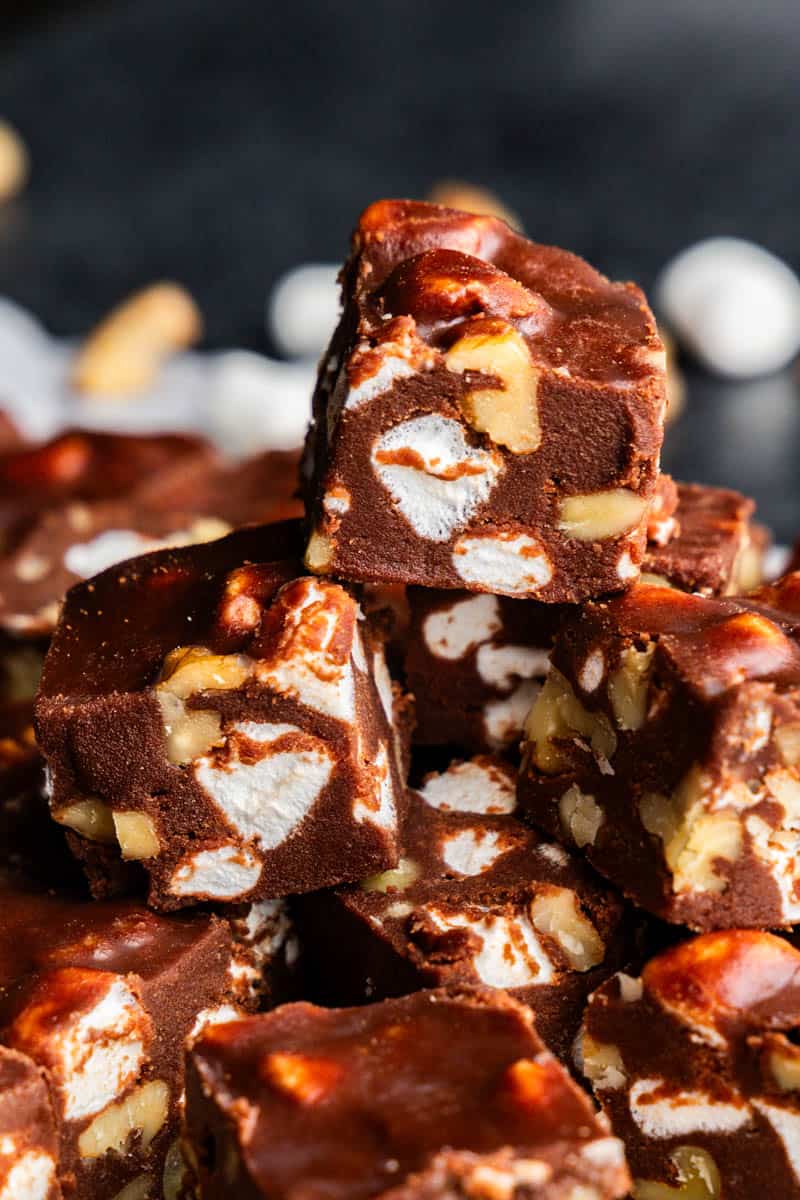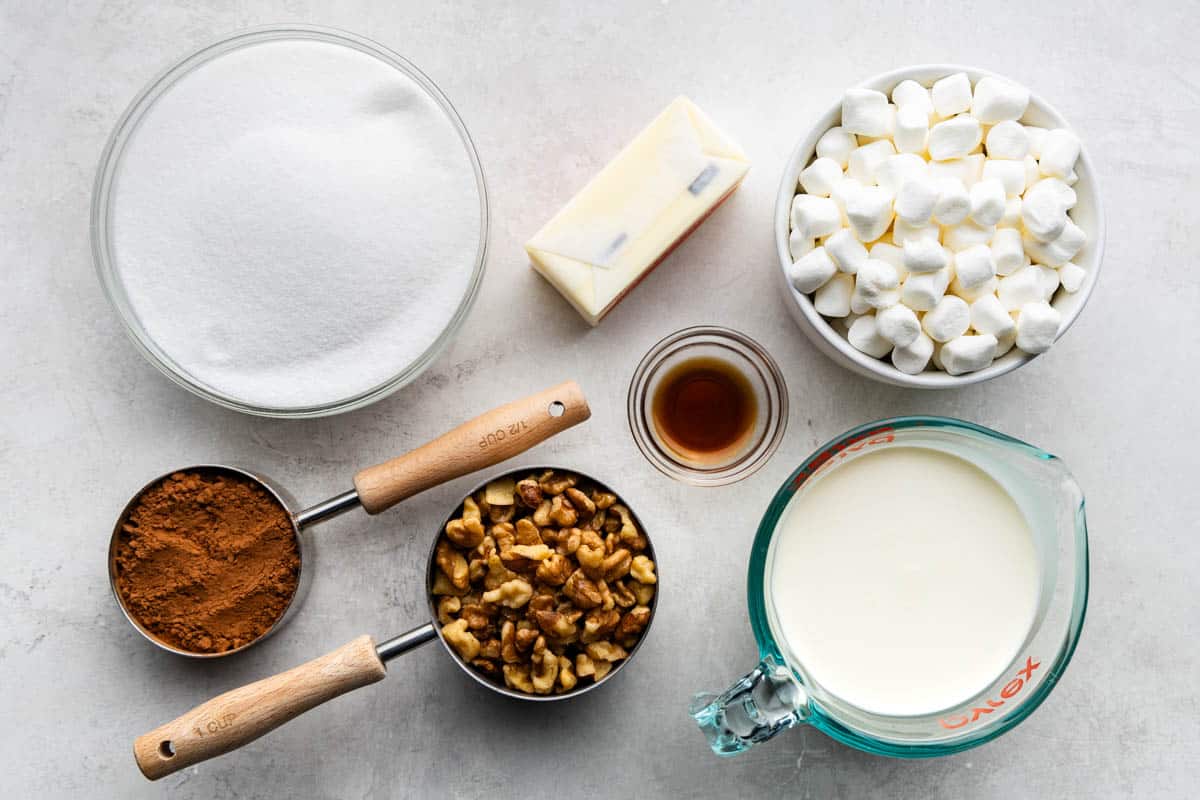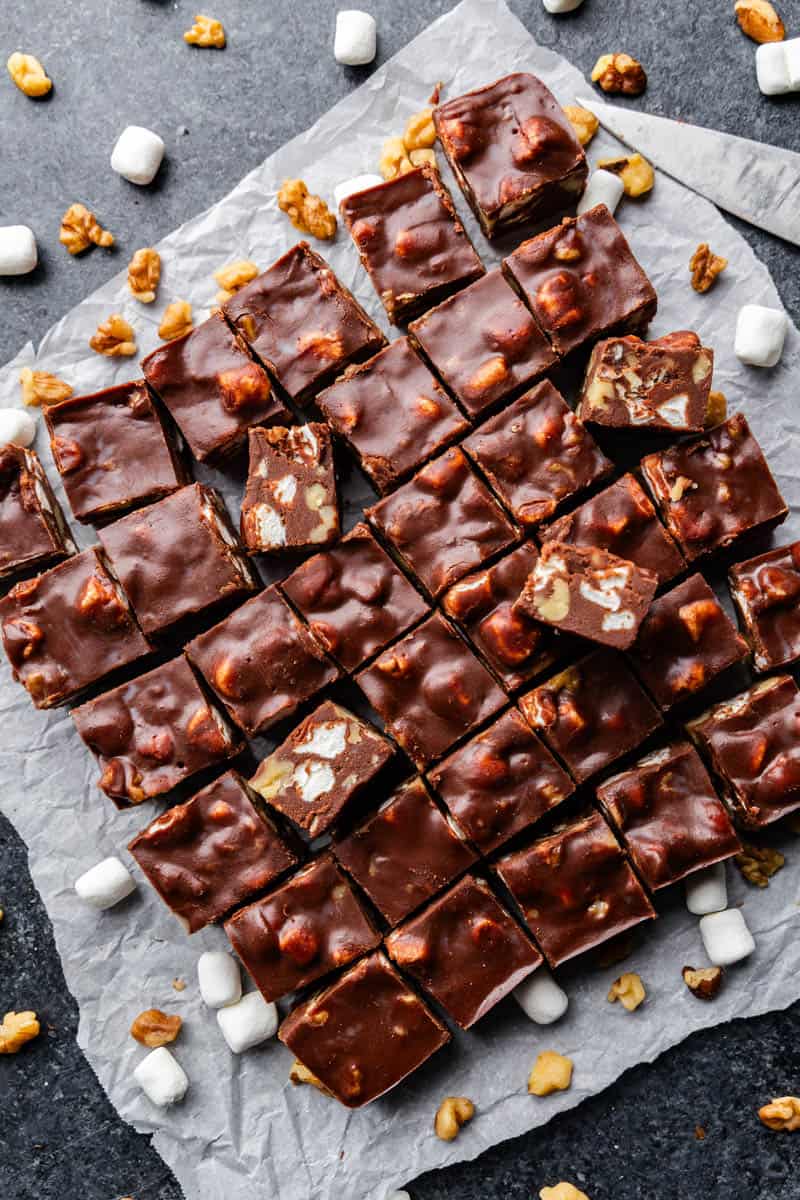Fantasy Fudge – The Stay At Home Chef
This fantasy fudge puts all other recipes to shame with its perfect blend of cocoa powder, marshmallows, and walnuts. When sweet and salty collide, it’s a beautiful—and seriously tasty—thing!
Looking for more sweet treats? Try our pecan pralines or our salted caramel shortbread bars.
Why Our Recipe
- Creamy fudge with gooey marshmallows and crunchy pieces of walnuts.
- A little food science ensures your fudge is always smooth and never grainy.
- We simplify the candy-making process to make sure all you need is a thermometer to succeed.

Fudge is the ultimate treat—whether you’re visiting home for the holidays, gifting a homemade dessert, or simply satisfying your sweet tooth. That’s why getting it right is so important. Lucky for you, we’ve perfected a fail-proof classic fudge recipe that’s irresistibly delicious and loaded with delightful textures. With this recipe, you’ll have the perfect piece of fudge every time—and earn some serious bragging rights!
Ingredient Notes


- Granulated Sugar: Use regular granulated sugar, the kind you likely already have in your cabinet.
- Unsweetened Cocoa Powder: Opt for a high-quality cocoa powder for a richer chocolate flavor. Dutch-processed cocoa is also a great choice.
- Heavy Cream: Adds creaminess and richness. Avoid substituting with milk or half-and-half, as this could affect the fudge’s ability to set properly.
- Corn Syrup: Helps prevent crystallization, ensuring a smooth texture. Light corn syrup works best here. Note: this is not the same as high fructose corn syrup.
- Salted Butter: If using unsalted butter, add a pinch of salt to enhance the chocolate flavor.
- Vanilla Extract: Adds a smooth finish and elevates the chocolate flavor.
- Mini Marshmallows: Contributes a gooey texture and sweet taste. You can also use marshmallow fluff as an alternative.
- Chopped Walnuts: You can use either salted or unsalted chopped walnuts. Chopped pecans, almonds, or peanuts can be used as an alternative.
Why Corn Syrup?
Our test kitchen experiments revealed that adding a small amount of corn syrup significantly smooths out fudge. It’s a little food science! Corn syrup is an invert sugar, which prevents crystallization. This means it helps you achieve that perfectly creamy texture instead of a grainy one.
Marshmallow Fluff Option
Some fantasy fudge recipes use marshmallow fluff instead of mini marshmallows. If you choose to use marshmallow fluff, substitute 2/3 cup of fluff for every 1 cup of mini marshmallows. For this recipe, you’ll need 1 1/3 cups of marshmallow fluff. This is because marshmallow fluff is denser and more concentrated. If you have trouble incorporating it into the melted fudge mixture, warm it up slightly to make it easier to fold in.
Mastering the Soft-ball Stage
Reaching the soft-ball stage is crucial for perfect fudge. Simply attach a candy thermometer to the side of your saucepan, making sure the bulb doesn’t touch the bottom of the pan. Once the mixture reaches 235–238°F, you’ve hit the soft-ball stage.
Hand Testing: If you don’t have a thermometer, you can test by dropping a small spoonful of the hot mixture into a bowl of cold water. If it forms a soft ball that flattens when pressed between your fingers, it’s ready.
Pro Tip: Avoid stirring the fudge mixture once it begins to simmer, as this can cause premature crystallization.


Storage & Freezing Instructions
Refrigerate leftovers in an airtight container or wrap them tightly in plastic wrap. They will stay good for up to 2 weeks.
Freeze by cutting the fudge into small bricks by dividing an 8×8 pan into 4 larger squares. Wrap each piece individually in plastic wrap, then place them in an airtight, freezer-safe container or resealable freezer bag to prevent freezer burn. Fudge can be frozen for up to 3 months.
Thaw frozen fudge in the fridge for a few hours or overnight.

